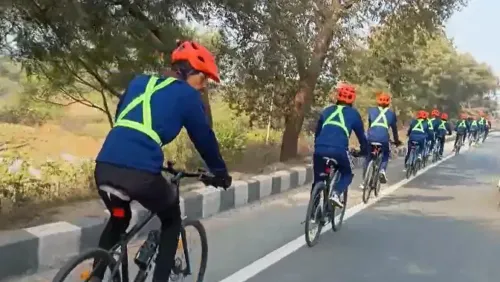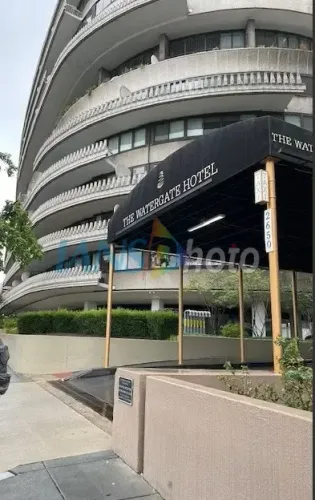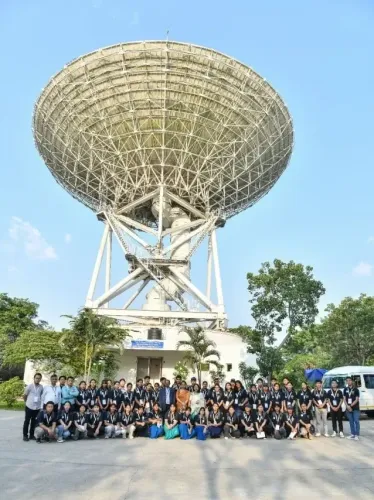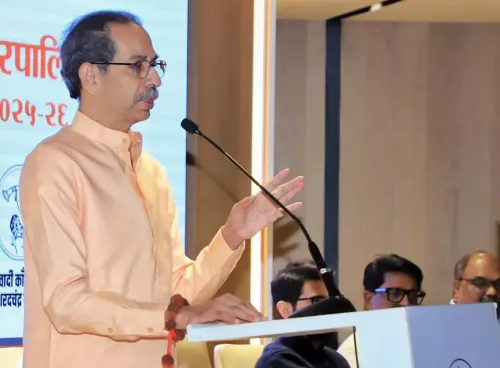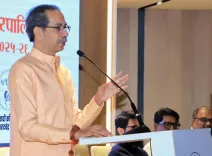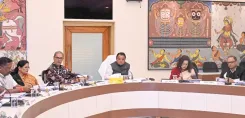How is the Gujarat Cabinet Prioritizing Public Grievance Hearings?
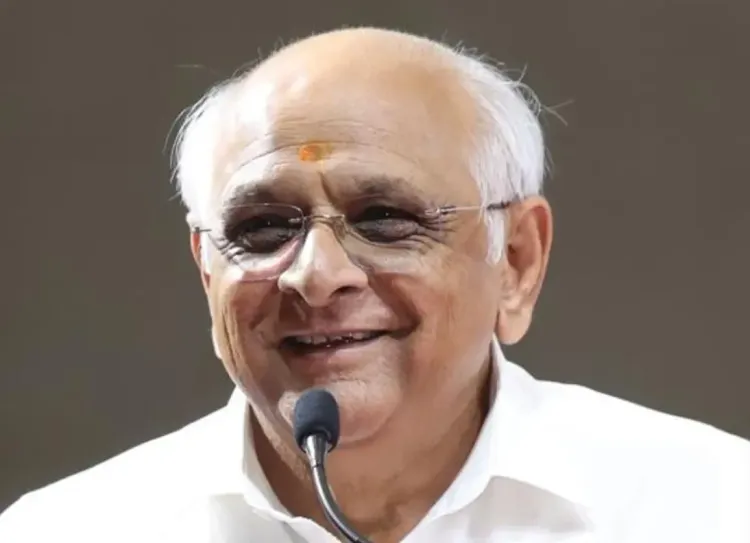
Synopsis
Key Takeaways
- Ministers to prioritize public grievances on Mondays and Tuesdays.
- Direct engagement with citizens, especially in rural areas.
- Strict oversight on road quality to ensure accountability.
- Intensifying health programs to reduce mortality rates.
- Real-time monitoring of departmental responses for effective governance.
Ahmedabad, Nov 12 (NationPress) The Gujarat government is dedicated to enhancing the quality of life for its citizens, especially among the underprivileged, poor, and rural communities, by adopting a governance model focused on Ease of Living and public welfare.
During a recent State Cabinet meeting in Gandhinagar, spokesperson and Minister Jitu Vaghani announced that the Chief Minister has mandated all ministers to dedicate Mondays and Tuesdays solely to addressing public grievances and representations from elected officials, barring any unavoidable situations.
The Chief Minister further instructed that on these designated days, ministers must remain in their offices throughout the day to personally attend to citizens’ issues and ensure effective solutions, rather than participating in other meetings or events.
Moreover, the Chief Minister has urged all in-charge ministers to visit their respective districts, hold review meetings with local authorities, and oversee the progress of significant flagship projects.
Ministers are also required to evaluate road conditions in their districts, meet with relevant officials by November 30, and provide detailed status reports directly to the Chief Minister.
To uphold accountability, CM Patel stressed that there can be no compromise on road quality and called for stringent oversight measures. Any cases of subpar work, he warned, should result in the harshest penalties for those responsible.
Emphasizing the state’s commitment to healthcare, the Chief Minister has also encouraged ministers to ramp up initiatives aimed at reducing infant and maternal mortality rates to align with global standards.
He urged for proactive implementation of health programs designed to improve maternal and child care outcomes throughout Gujarat.
District collectors and officials are also conducting Jan Samvad or Janata Darbar sessions across districts and talukas to engage directly with citizens, particularly in rural areas.
The Chief Minister’s real-time dashboard monitors departmental responses, ensuring accountability and timely resolutions. In-charge ministers are expected to visit their assigned districts, review infrastructure and welfare projects, and address on-ground issues, while Seva Setu and Digital Seva Kendras offer services and grievance mechanisms down to the village level.
These initiatives, supported by ongoing performance evaluations of officers, embody Gujarat’s overarching objective of cultivating a transparent, responsive, and efficient administration that prioritizes public involvement and swift problem resolution.


